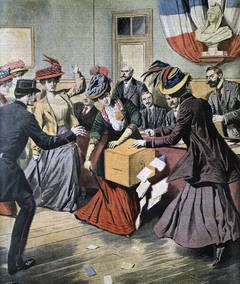So! Political and Social Protest Writing...

Texts Studied
William Blake
Songs of Innocence and of Experience
Margaret Atwood
The Handmaid's Tale
Khaled Hosseini
The Kite Runner
Assessment Objectives
Remember that when formulating your answers...
AO1: Argument, ensure that your answer has balance (arguments agreeing and disagreeing with the statement/ question)
AO2: Comment on the Language, Form and Structure
AO3: Use of Context, so the influence the author has had, their background, authorial intent and more
AO4: Intertextuality, are there theories or critical ideas to back up your point(s) or to critique?
AO5: Interpretations!
Elements of Political and Social Protest Writing
- Type of text (post-modern, science fiction, satirical poetry, historical and political drama?)
- Settings created as backdrops for political and social actions - power struggles within them
- Nature of power struggle; behaviour of those with and without power
- Pursuit of power; rebellion against those with power
- Warfare, revolution, coup d'état
- Workings of the ruling political classes; corruption, conspiracy, control
- Connection of smaller world to the larger world
- Focus on human organisation; domestically, in work place, in local and national governments
- Gender politics and issues of social class
- Structural patterning of text
- Use of language in worlds created; neologisms, names
- How the text is used to comment on society; particularly the representation of society at particular historical periods
- How the text affects audiences and readers - inviting reflection on our own world
If you don't know the basics, it's simply everything that evolves around the government, the parliament and politicians. It can also involve leaders (if they're a dictator or whatever) and more!
People in positions of power govern our lives and problems that arise from politics are things such as:
- Discrimination (race/ class/ gender/ sexuality)
- Whether something is moral/ immoral or just/ unjust
- If we are being deprived of our rights
- Choices made whether we comply to laws or social conventions and the consequences
Areas (generic themes) to focus on
- Power and powerlessness
- Equality and inequality
- Freedom and slavery
- War and peace
- Protest and rebellion
- Police and surveillance
- Democracy, leadership and corruption
- Government and laws
- Institutions and rules (i.e. Religion)
Context
- Romantics, French Revolution and the Industrial Revolution (18th-19th c.)
- Focuses on struggle of freedom and expression in an oppressive world
- French Revolution, 1789
- People overthrew an oppressive and exploitative monarchy
- Hoped to gain democracy, equality; relieved from poverty, exploitation and injustice
- Industrial Revolution, 1750-1850s
- Desire to bring back personal and social improvement after seeing the horrors of the industrial revolution; exploitation of labour (children and low pay) and disregard for life (well-being)
- 'The personal is political', 1960s
- We ought to choose how to live our lives and to be suppressed or oppressed by rigid laws
- Reminder that our personal lives are affected by politics
- Groups in society protesting against social injustice and fighting for their rights
- Included: women, black people, gay people etc.
Why would someone want to write a political and social protest text?
- The obviously want to spread awareness of potential problems because if X occurs then Y comes as a result
- To communicate how a society can tackle potential problems
- Inviting them to reflect upon their current society
- Also creates fears for the potentiality of a society becoming like the dystopian version
Concepts within political and social protest writing
- Realism; movement in art and literature to represent life in the most realistic way
- Social realism; form of realism that focuses on contemporary social and political issues
- Agitprop theatre; theatre of political nature designed to show the struggle of the 'proletariat'
- Pastoral; concerned with beauty of nature and the countryside and the preservation of it
- Modernism; movement that challenges traditional forms and conventions
- Fascism; extreme right-wing political movement
Intertextuality
- Karl Marx: Religions is the "opium of the people"
- Jean-Jacques Rousseau: Society imposes restraints on individuals, forcing them to comply with social expectations and to bury their individuality
For notes on 'Songs of Innocence and of Experience', The Kite Runner and The Handmaid's Tale, please look at my other posts!

This is a really helpful resource thanks!!
ReplyDeleteJust a quick correction; when you state that this work isn't yours you use the word weary which means tired instead of wary meaning cautious.
IM SITTING MY A-LEVELS TOMORROW *excited* *excited* :D :)
ReplyDeleteMe too!!! Good luck
DeleteMe three!! I wish you all good luck! We’re gonna do great >:)
Delete